Welcome to Wellness Wisdom - A newsletter for the thoughtful. A medley of resources and thoughts on wellness start-ups, personal development, spiritual growth and philosophy.
Hello thoughtful humans! ❄️
Currently I’m super sore from a 5 mile hike. If you’re ever in Utah, definitely check out Fifth Water Hot Springs. The hot springs at the end warrants a high effort : reward ratio.
Nevertheless, I got up early this morning to write. With Flawed Mangos blasting on Spotify, I’m currently crowded around a large table with 6 other creators typing away.
Today’s newsletter:
the root of human suffering
why I like and don’t like Whoop
Capitalism vs. Marxism for ultimate human happiness
P.S. This week I finally launched a way for readers of this newsletter to support my work in order to keep this publication free. I like to think of it as Curation-as-a-Service.
In exchange for supporting me as a creator, I curate the Internet for you 🔮🐇
If you’ve ever gotten any value from my writing, it would mean the world to me to have your support.
I’m convinced that a great deal of human suffering, shame, and guilt, stems from a simple predicament: whether or not we adhere to our values.
Value (noun) - Values are certain universal ethical attitudes. It is the regard for a thing, situation, or attitude, which for some reason is esteemed or prized by the value holder.
We have values whether we know it or not because as humans we cannot escape from relationships.
Our inherent desire to be comfortable and secure compels us to set standards for others’ behavior. Values can be disregarded only if we have no concern for how others treat us. If I want other people to behave in a certain manner, I am caught in a value system.
Let’s take an example of a universal value: You value truth.
You expect others to be truthful to you. So you must be truthful to others.
A value is always split into 2:
Personal value - what I expect from others
Obligatory value - what I expect from myself
When I have a value structure that I follow and expect others to follow in the same manner, my values cause me no conflict.
However, when I want others to behave in a certain way, but for my own reasons, I am not able or willing to behave in that way, I have a problem.
While a personal value is spontaneously observed for its own sake, an obligatory value is subject to compromise when it obstructs a highly desired individual end.
Say a situation arises where if you lie, you can make more money. Someone wants to buy a car for $20K, the same amount you paid for it. You can easily say you paid $25K and make $5K more.
Though you feel an inherent tension, you decide to lie. Though your personal value of truth persists for how others treat you, your obligatory value - what you expect from yourself - has been compromised.
What follows is guilt and shame. You can ignore the guilt, but you cannot avoid it. Once you have guilt, you cannot have a fully comfortable self.
Conflicts come when you are unable to live up to a particular value which, consciously or unconsciously, you accept.
Failure to live to a value puts you in conflict with ourself and a mind in conflict is not a desirable mind. Once conflicts are there, problems of mind are unavoidable. Self-condemnation, regret, guilt, and a sense of failure are the products of a mental conflict.
When one performs an action that is a non-value, one creates a seed of guilt, which is all this is needed to product sleeplessness, fear and conflict.
As such, when we build up a series of lies such as these, we create a split. We are not integrated.
Even small lies create problems, like lying about our age. Though it may seem like a simple, unimportant thing, small lies register inside as conflicts. This is true for a saint as it is true for a murderer. No one can escape the accumulation of conflicts.
Fulfilling an immediate end at the expense of a general value may bring some passing comfort, but in the long run, it adds to your discomfort by increasing your accumulation of guilt, large and small.
We can see examples of this profoundly in the Netflix series Bridgerton - where almost all the characters go against their values to satisfy a short-term gain.
However, in the process, the accrue guilt and long-term consequences.
*SPOILER ALERT* - scroll past if you haven’t but plan on watching Bridgerton.
Whenever you ignore your values - you create a split in yourself. For instance:
You know you should tell the truth, but you don’t in order to gain more money.
You should get up 30 mins early to exercise. Instead you turn off the alarm and sleep 45 mins longer.
You should go on a diet. Instead you help yourself to a 2nd donut.
Once you do this you begin to condemn yourself. You tell yourself that you’re useless, that you cannot do what you want to do, that you are not the person you want to be.
As such, the quality of life always suffers when one becomes split. To appreciate the beauty of life and to really be available to enjoy its comforts, one needs to be ‘together’.
One of the biggest traps that cause people to do things that go against their values is money. Where the individual situational value has the power to surmount the obligatory half of the value.
Why do we do this?
Money quite literally is just paper. But we value money because of the things it can buy us to wear, look at, experience, etc.
Or in other words, things that give us pleasure and comfort. We value money because we value comfort - not just physical comfort, but to be truly comfortable with ourselves.
It is always ones hope that the extra comforts that money can buy, will make me more comfortable with myself.
When I ignore my value of truthfulness, and tell a lie to gain more money, it’s because i’ve concluded that money will add to my comfort.
However this is a trap.
Because the temporary pleasure it gives you compromises your long-term mental comfort. Thus, the comfort you could buy with more money, will not be able to sustainably deliver its comfort because of the guilt and shame you accrue through its transaction.
For comforts to be enjoyed you must be there to enjoy them. When you are split with guilt, you are rarely anywhere but with your anxieties, regrets and guilt.
Not recognizing the problem for what it is, you seek more comforts to ease your uncomfortable mind.
Once you understand this truth, adhering to your values is as simple as asking yourself: “Do I want happiness or unhappiness?”
When you clearly see this fact, living in coherence with your values will be a no-brainer.
For the person with assimilated ethical values, life becomes very simple. No conflicts cloud his or her mind. This is true comfort. This is happiness.
In summary:
Values are splint into 2: ‘Personal value’ - what I expect from others. And ‘Obligatory value’ - what I expect from myself.
When you compromise your obligatory value despite still holding the personal value, you create a conflict in yourself.
As such, your quality of life always suffers when you becomes split.
Once you realize this, it’s a no-brainer to always adhere to your values and never compromise them for short-term gains.
Some questions to ask yourself:
What are your values?
What small “harmless” ways do you compromise those values today?
What recent value have you compromised in order to obtain short-term comfort?
Can you see how the compromise is harming your ability to enjoy the thing you obtained?
To our peace of mind -
Yours,
Patricia
Source: These ideas are adapted from Swarmi Saraswati in his book The Value of Values, a companion to the Bhagavad Gita. A book that a beloved mentor of mine shared with me. I highly, highly recommend.
Whoop - 6/10 - unsponsored
I’ve given quantified fitness trackers a few tries in my lifetime. 1st with FitBit, then with Apple Watch, and recently with Whoop.
The former 2 haven’t been able to stick because the quality of insight hasn’t been able to overcome the friction of charging the device + feeling like there’s another piece of ambient tech in my environment.
I wanted to give Whoop a try because of its ability to track Heart Rate Variability and more granular distributions of my sleep (light, rem, and deep). After 1 month with the tracker I think it provides 2 distinct benefits:
Sleep Efficiency - which tells you how tired you are and your patterns across light, rem, and deep sleep.
which feeds into Recovery Score - which tells you how much strain you’re going to be able to take on for the day.
The key insight is how Sleep efficiency feeds into Recovery score - and how sleep and strain are interrelated. You realize that wellness really is a holistic and delicate ecosystem that propagates itself towards positive or negative feedback loops. This insight keeps you accountable to maintain the balance through corrective actions.
The tracker has so far been the most insightful and successful in my adoption, however, I want to give it a few more months before I make a call on whether to continue wearing it.
So far the battery life has been 2~ days max, and it’s annoying to charge it all the time. Furthermore, it would be even cooler to see how what I eat impacts my sleep efficiency and recovery score. Apparently, Apple will be able to support glucose monitoring in the near future so that may be a better option.
I’ll keep you guys updated.
P.S. if you want to join Whoop, here’s my referral link for 1 month free
From today onwards, i’ll only be sharing 3 links here!
The rest of the 40-80~ links will be shared through Rabbit Holes with Patricia 🔮🐇 this week including:
🔗 A playbook for shipping side projects
🔗 Google doc of 50 mental models & 1st principles thinking
🔗 A deep-dive into power, justice, well-being on the web
🔗 Twitter productivity tips from Dan Romero
🔗 10 questions that changed Greg Isenberg’s life
🔗 A new course on Pixar’s art of storytelling
✨ Golden by Ava
Big fan of Ava’s writing. She recently wrote a beautiful piece on finding herself:
All around there were people who seemed so wholly focused and competent and desirable, so certain of themselves, and all I wanted was to absorb that certainty by osmosis. But I couldn’t. I really struggled. When I finally found certainty it was by turning away from other people and turning towards myself. I guess that’s how everyone finds confidence, in the end: through rejecting mimicry.
🧠 Interview: Liam Kofi Bright
If you follow one philosopher on Twitter, you could do worse than to choose Dr. Liam Kofi Bright, an assistant professor at the London School of Economics. His recent interview is quite refreshing:
N.S.: OK, so, like, you're a philosopher. So, what's the meaning of life?
L.K.B.: To strive, to seek, to find, and not to yield.
📝 The Anti-Anxiety Notebook
Designed by psychologists, therapists, and designers with decades of experience, this notebook empowers you with the tools to cope and manage your mental health. The structured journal entry is based in Cognitive Behavioral Therapy, a proven technique for tracking and managing stress.
Slavoj Zizek and Jordan Peterson debate on the concept of Happiness: Capitalism vs Marxism. Basically, which economic model best supports human flourishing?
Check out some of their books:
Peterson's: Maps of Meaning: The Architecture of Belief
Peterson's: 12 Rules for Life: An Antidote to Chaos
Zizek's: The Sublime Object of Ideology

Thank you for being part of The Wellness Wisdom newsletter today.
I’m Patricia and have a full-time job but curate this newsletter in my free time as a labor of love.
This newsletter is free because I believe everyone deserves to have access to wellness resources.
If you want to support this publication, join me down the rabbit hole🔮🐇.
I also curate bi-weekly at AmorFati - a newsletter where I share whats been inspiring me in art, photography, architecture, and literature.



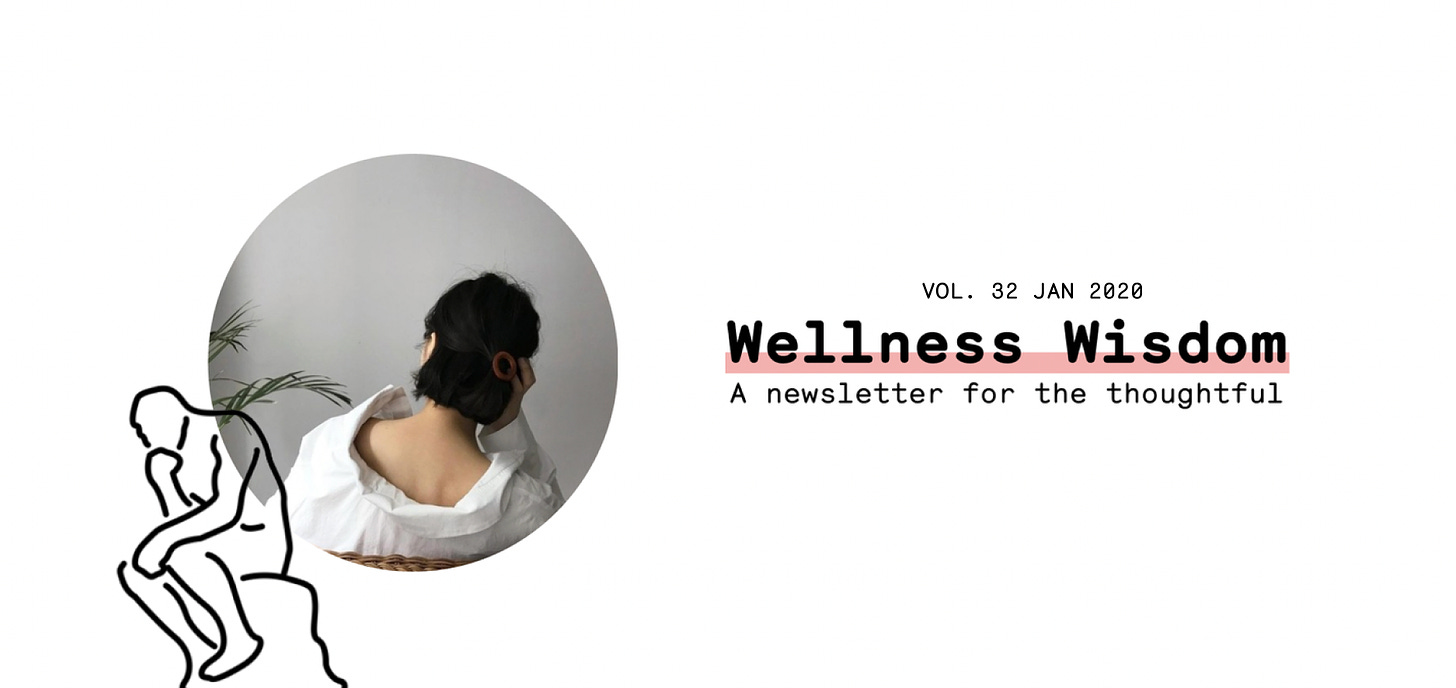



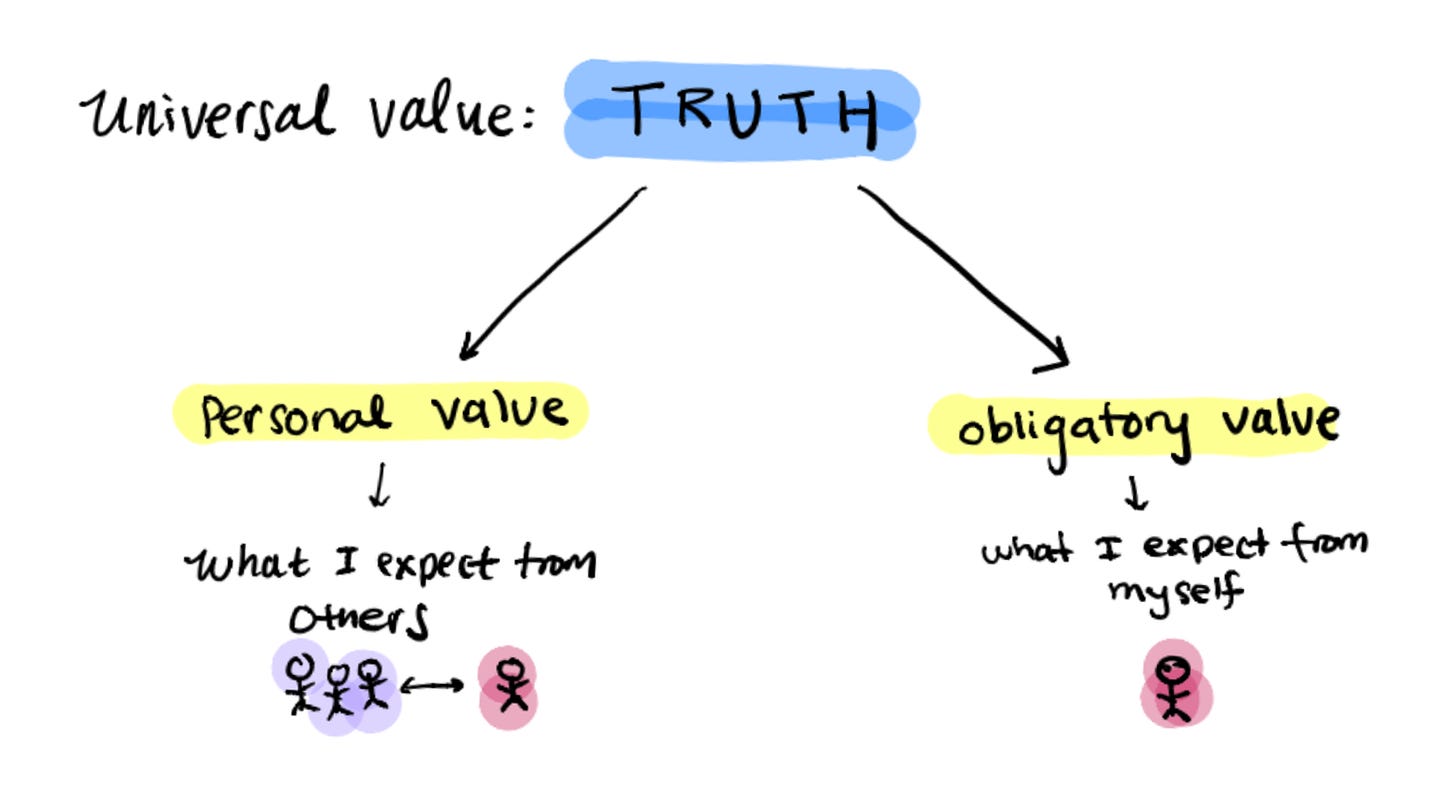
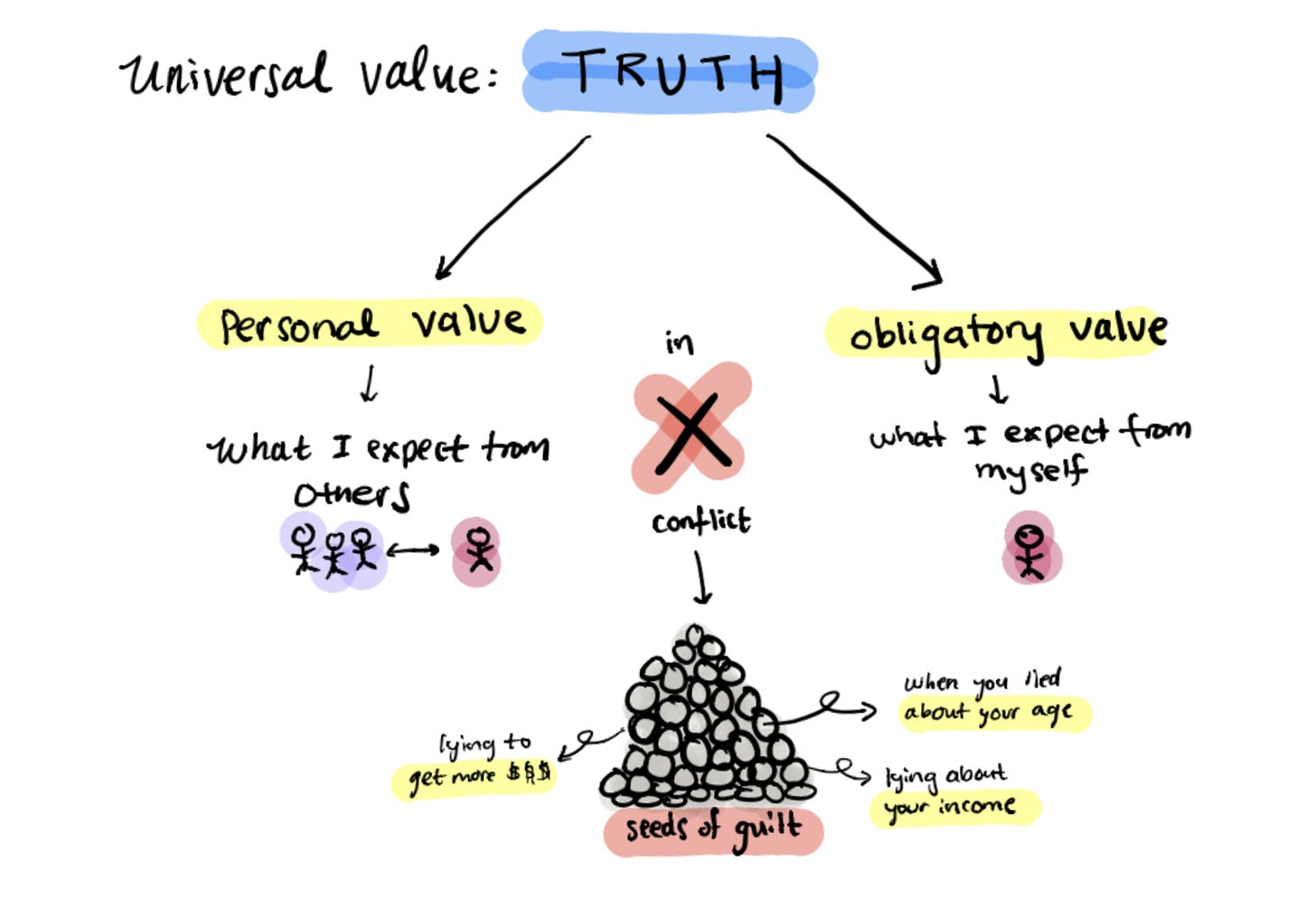
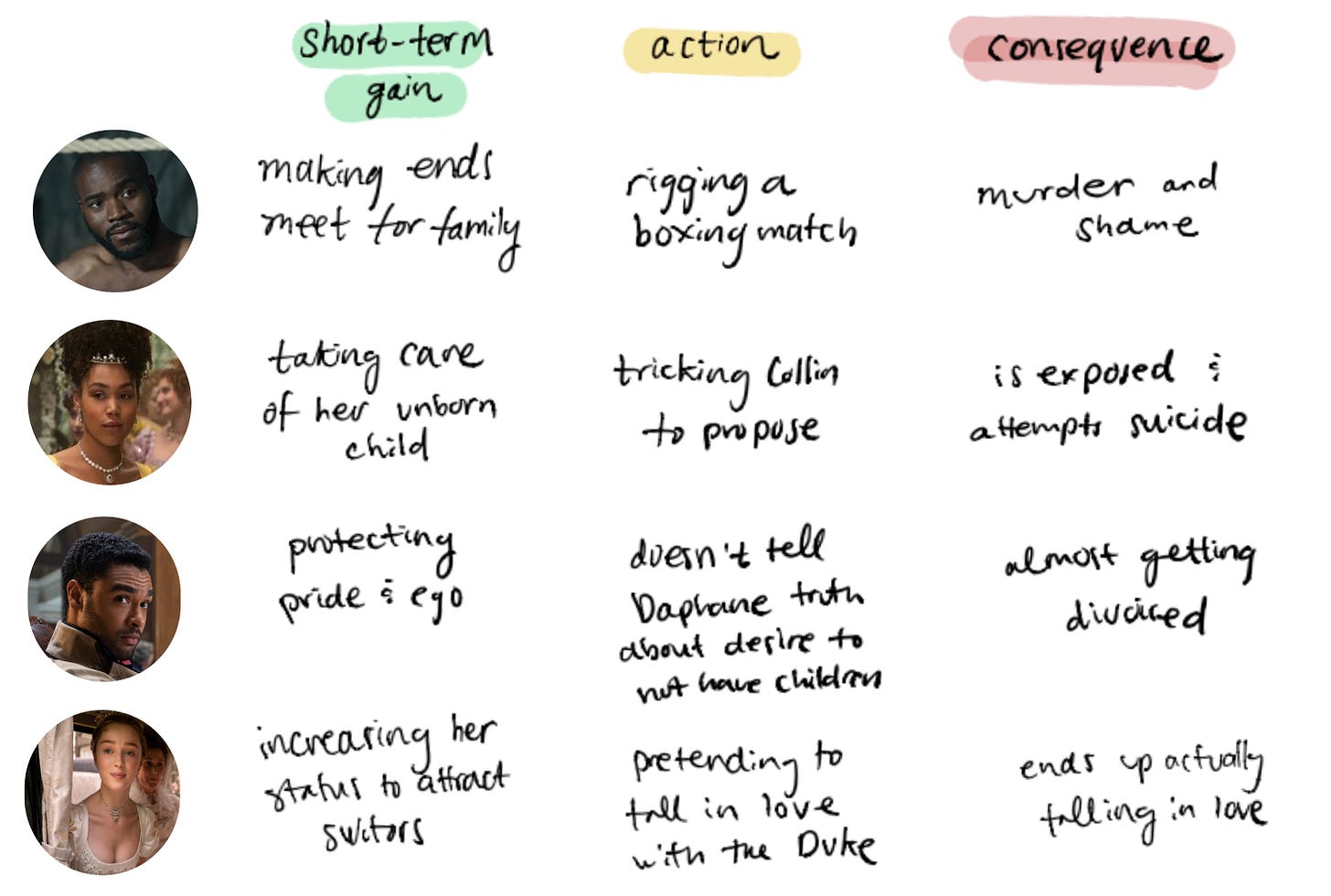

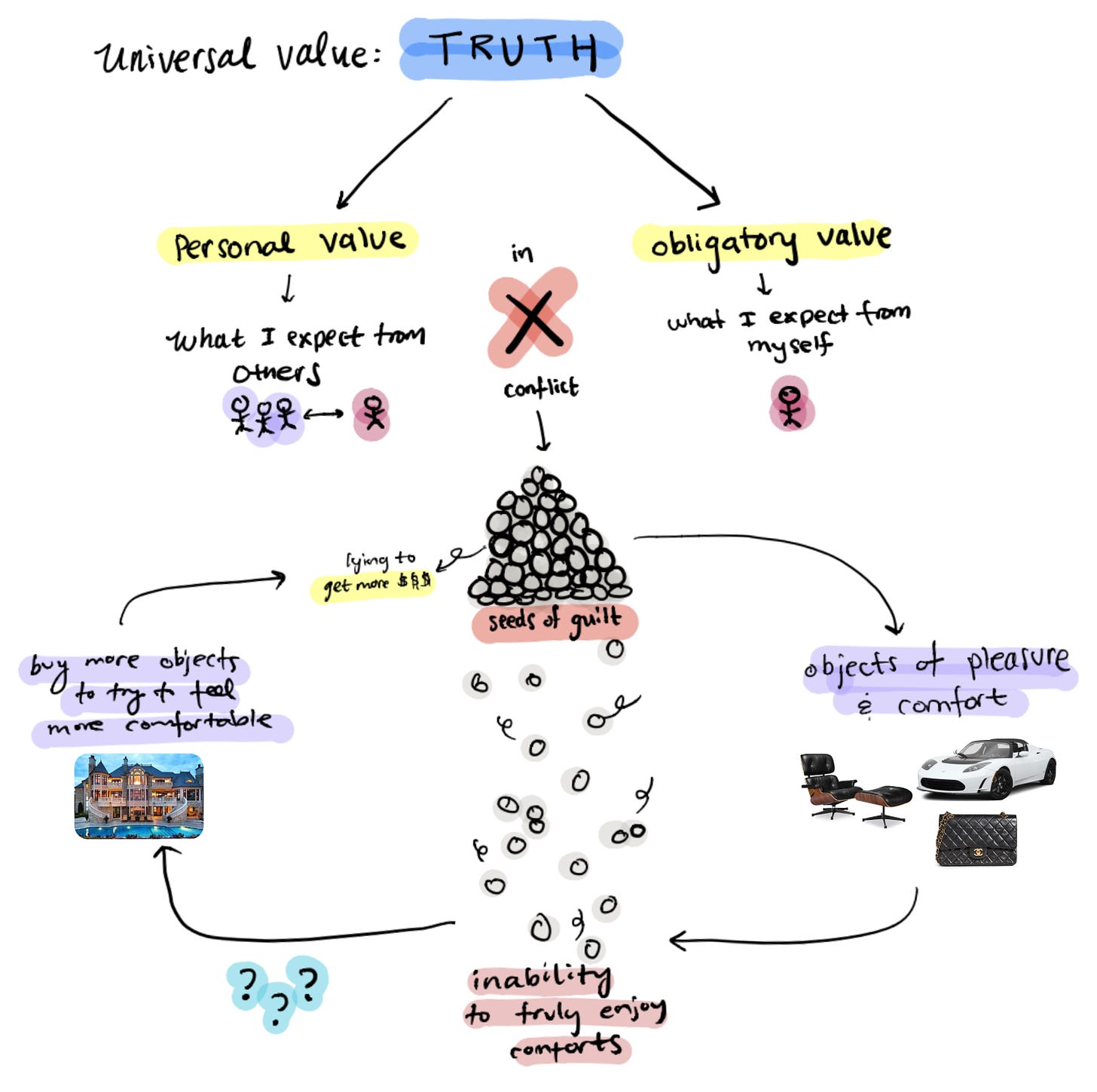
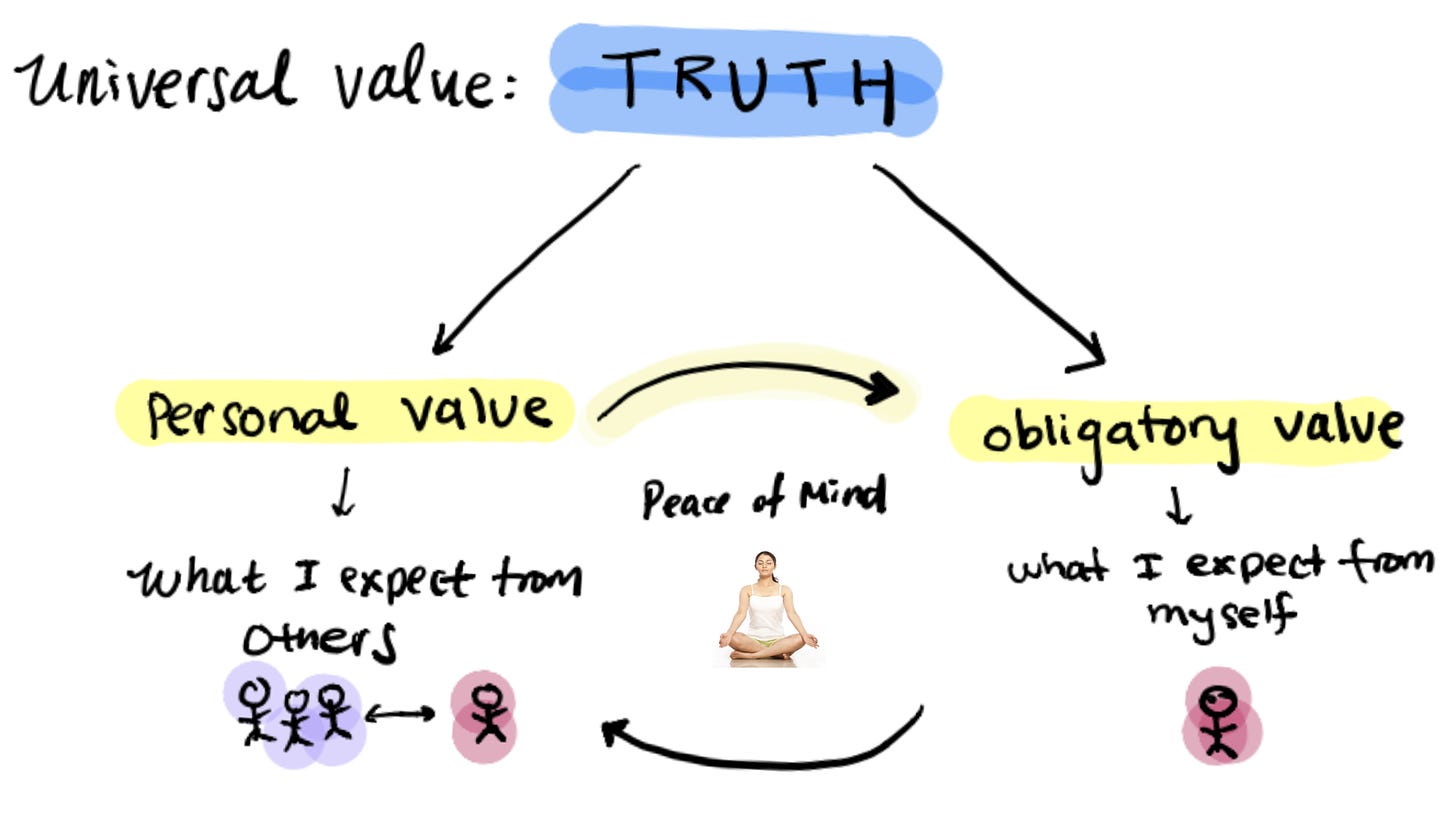






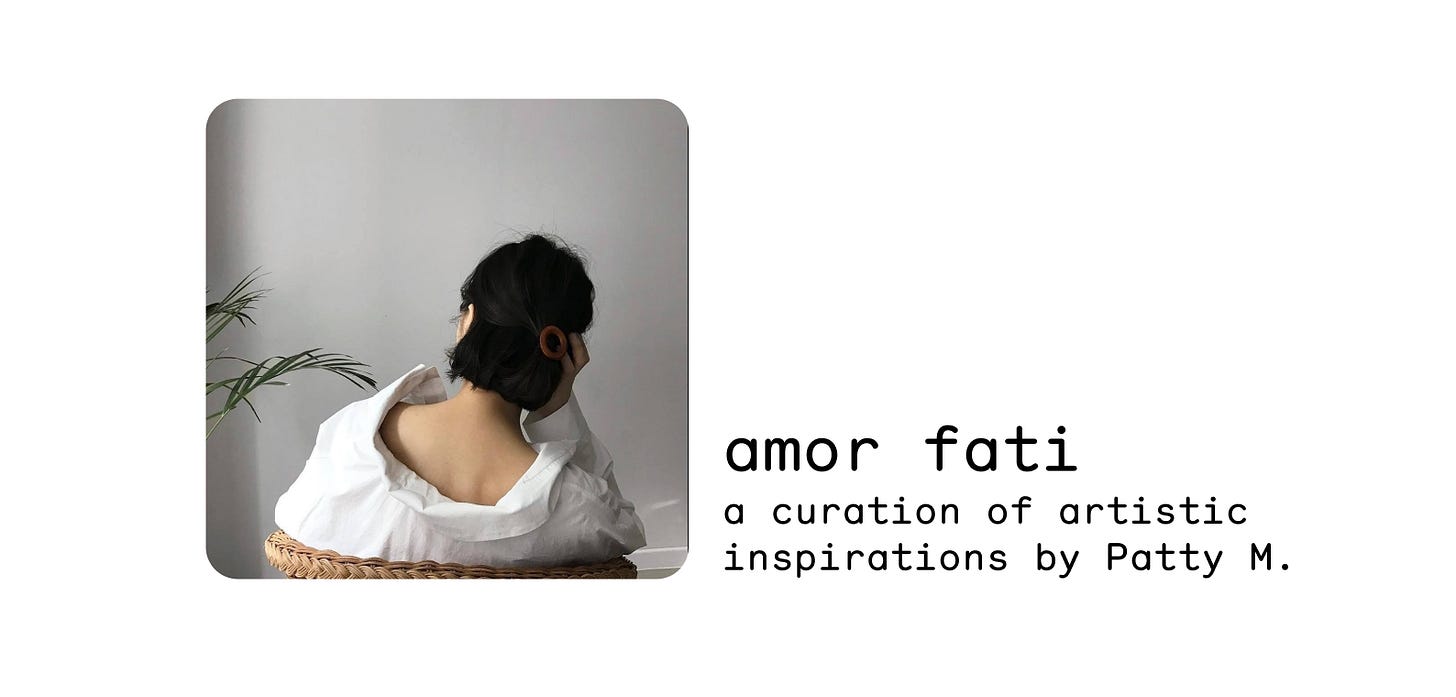
Really enjoyed reading this. I have been feeling rather “split” lately and seems it would help to Re-evaluate what my values are and how I’ve been straying away from them 🤔